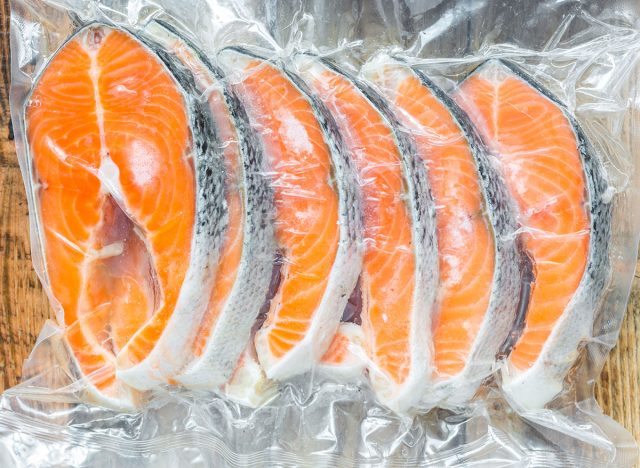Eating This One Type of Food Could Slash Your Alzheimer's Risk, New Study Finds

Over six million people in the U.S. have Alzheimer's disease, a progressive form of dementia that can lead to severe memory loss and, in many cases, the inability to care for oneself as the disease progresses. According to the Alzheimer's Association's "Alzheimer's Disease Facts and Figures" report, one in nine adults 65 and older has Alzheimer's disease, with cases predicted to double by 2050. While there is currently no cure for Alzheimer's, new research suggests that eating a particular type of food may be able to help reduce your risk of developing the condition in the first place.
Read on to discover which dietary alterations could keep you healthier as you age. And for more great additions to your healthy living arsenal, check out The One Vitamin Doctors Are Urging Everyone to Take Right Now.
Antioxidant imbalances may predict your risk of Alzheimer's disease.

A new study published in Alzheimer's & Dementia: Diagnosis, Assessment & Disease Monitoring reveals that antioxidant imbalances in the human bloodstream may be a predictor of a future Alzheimer's disease diagnosis rather than a side effect of the condition.
The study's researchers found that elevated biological markers of oxidative stress can show up in the blood of individuals with Alzheimer's up to five years prior to the onset of the disease.
RELATED: This Is the #1 Diet to Follow to Prevent Alzheimer's, Says New Study
Eating antioxidant-rich foods may be able to help.

While research suggests that limiting exposure to environmental pollutants and getting enough exercise are both effective at reducing oxidative stress, they're not the only ways to lower your risk of an oxidant-antioxidant imbalance that may increase your Alzheimer's risk.
The study's authors also suggest that dietary intervention—specifically, adding additional sources of antioxidants to your diet—may help offset these imbalances, thus lowering your risk of developing Alzheimer's.
"Given that there is an increase in oxidative stress in people who develop the disease, we may regulate the antioxidant systems. For example, we could modulate the antioxidant systems, such as apolipoproteins J and D, which transport lipids and cholesterol in the blood and play an important role in brain function and Alzheimer's disease. Another avenue would be to increase the intake of antioxidants through nutrition," says Charles Ramassamy, PhD, a professor at the Institut National de la Recherche Scientifique, who supervised the study, in a statement.
For the latest healthy living news delivered to your inbox, sign up for our newsletter!
Many foods you already eat are packed with antioxidants.

If you think that adding more antioxidants to your meal plan requires a full dietary overhaul, think again.
Foods like black raspberries, blackberries, blueberries, pomegranates, strawberries, apples, plums, cherries, dates, artichokes, red cabbage, and broccoli are all packed with healthy antioxidants that may help reduce oxidative stress in your body.
Omega-3s may have a similar effect.

Antioxidant-rich fruits and vegetables aren't the only way to stave off cognitive decline, however.
A 2015 review of research published in BioMed Research International found that omega-3 fatty acids, commonly found in seafood, flaxseed, and chia seeds, among other sources, also show promise when it comes to reducing the risk of cognitive impairment. "The strongest evidence in support of nutrition preventing cognitive decline in AD is for long-chain omega-3 fatty acids. Primarily, this is because long-chain omega-3 has shown promising potential to ameliorate low-grade inflammation in the early stages of this neurodegenerative disease," the review's authors explain.
For more ways to improve your cognitive function, check out The Best Foods for Your Brain After 50, Say Dietitians.
Read this next:
Eating These Foods Can Keep Your Brain Sharp, Study Shows
New Study Claims The MIND Diet Can Help Prevent This Common Aging Problem
The #1 Cause of Dementia, According to Science








